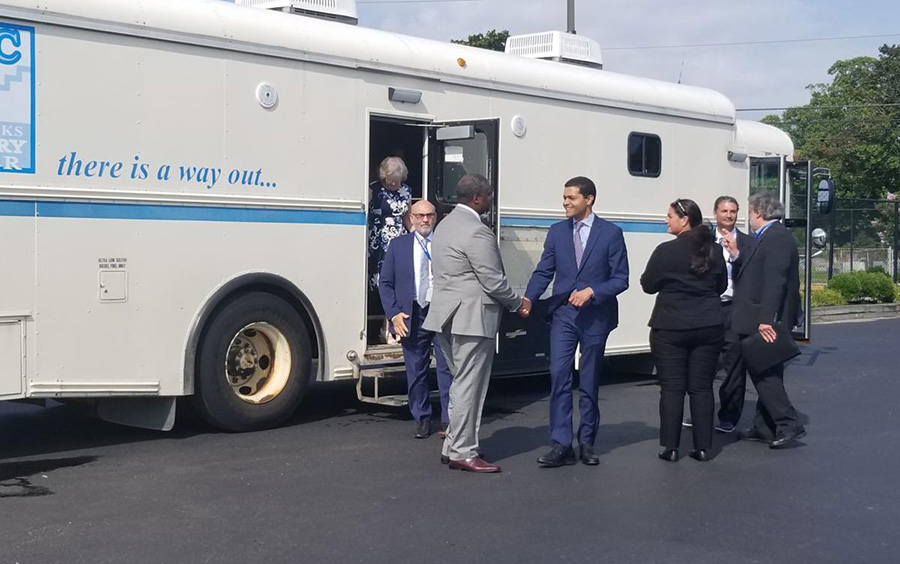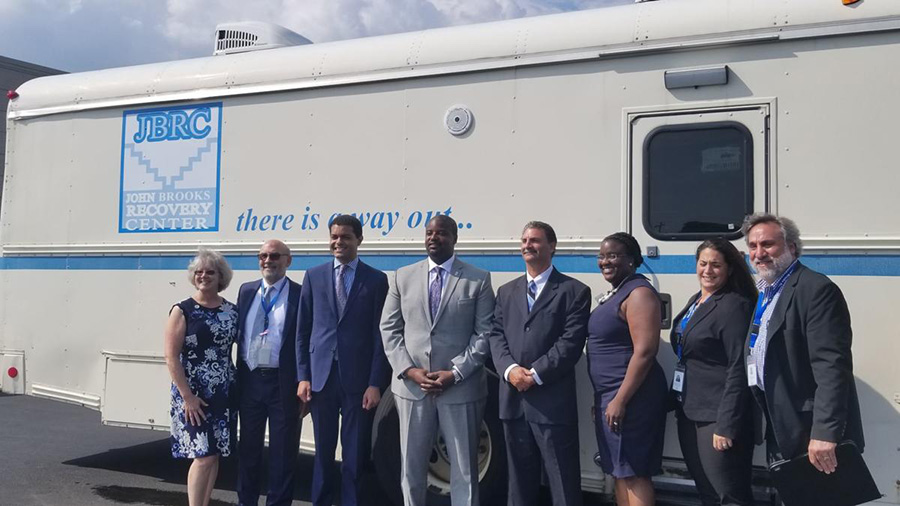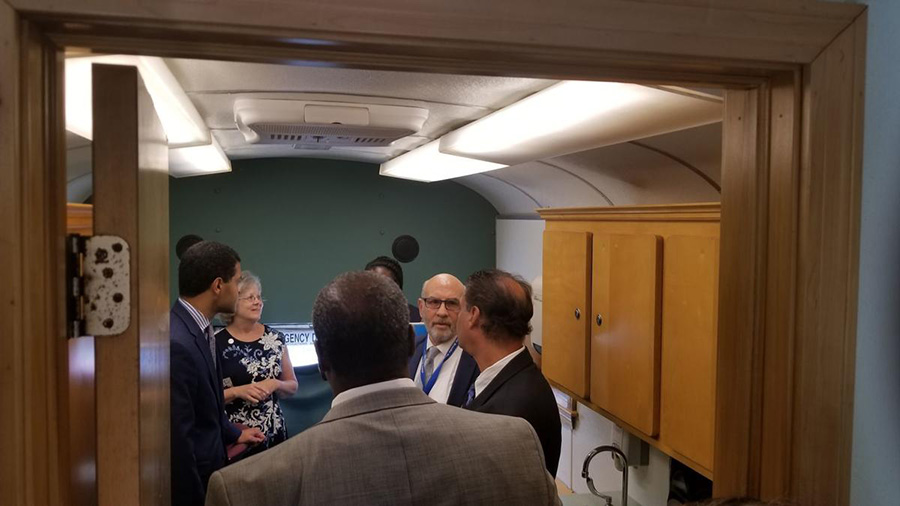Atlantic County inmate addiction program upheld as state model
December 1, 2020
Courtesy of The Press of Atlantic City.
PLEASANTVILLE — State leaders this week cited an Atlantic County addiction treatment program as a leading example of how to combat an opioid epidemic that has devastated New Jersey communities.
The John Brooks Recovery Center and Atlantic County jail’s joint pilot program is the only one of its kind in the state that brings medication-assisted treatment such as methadone to county inmates with opioid-use disorder, and is something state officials hope to expand to other counties, but challenges remain.
“What we want to do is make sure that this treatment is available to as many folks as possible across the criminal justice system,” state Health Commissioner Dr. Shereef Elnahal said. “This is a center that is on the tip of the spear in this area in terms of setting up infrastructure, access to medication-assisted treatment that is really unparalleled across the state.”
State and county officials met Monday at the recovery center to discuss the merits of medication-assisted treatment and how to expand services across the state, looking at the Atlantic County program as one of several solutions that could be replicated by other counties.
The program is funded with $343,713 from the state Division of Mental Health and Addiction Services and began in July 2017.
Licensed treatment experts have traveled to the jail in a mobile bus outfitted with exam and intake rooms to treat pregnant women addicted to opioids or who are already on methadone, any inmate already using methadone and addicted inmates at high risk of recidivism.
Program results showed the county saw expanded access to medication treatment for 345 high-risk inmates, and reduced overdose cases and recidivism among Atlantic County’s incarcerated population.
About 1,723 people in New Jersey have died of an overdose this year, state statistics show, including 97 in Atlantic County.
About 80 percent of inmates in New Jersey with substance use disorder were under the influence when they committed their crime, Departments of Health and Corrections officials said.
Recovery center officials said there have been no known overdoses among the 80 percent of program inmates they are able to track after release from jail.
“Before, I would try to find anything that could help me detox,” said Giovanni, a jail program and county recovery court participant whose last name was withheld. “When I heard about methadone, I didn’t think it would work, because nothing else did. But being in jail and coming out with methadone was the best thing I ever did.”
About one in four inmates who continued with medication-assisted treatment while in the Atlantic County jail this year were from recovery court, Superior Court Judge Mark Sandson said.
Despite the program’s success, finite financial resources, medications and expertise remain barriers to a statewide expansion, Elnahal said. Also missing are commitments from county jails and community organizations to form partnerships and adopt the program.
State officials are looking at ways to get more federal funding to bring medication-assisted treatment to arrested men and women who wish to seek treatment, and create flexibility within state grants so treatment providers can use money where it’s needed, he said.
State Corrections Acting Commissioner Marcus Hicks said it may also take longer, within the corrections system, to see a “shift in philosophy” on the role jails and prisons play in the addiction epidemic, but the shift has started.
Medication-assisted treatment is offered at state-managed prisons, including Mid-State Correction Facility in Wrightstown, which became New Jersey’s first licensed, clinically driven substance use disorder treatment program for state-sentenced inmates in 2017.
Michael Santillo, executive director of operations at the Brooks center, said 78 percent to 90 percent of Atlantic County program inmates, upon release from jail, are linked directly to outpatient treatment programs, support services and wraparound programs to help them continue in recovery.
About 45 percent of program participants were re-arrested for drug-related and nondrug-related offenses after release, Santillo said, which remains below the national rate of 60 percent to 80 percent, according to the National Association of Drug Court Professionals.
John Brooks CEO Alan Oberman said the organization is moving forward with plans to improve the program, which include establishing a treatment dispensary within the Atlantic County jail that eliminates the need for a bus, and educating professionals and the public on the benefits of medication.
“Methadone is a highly stigmatized treatment despite it being one of the most effective,” he said. “Every life is worth saving, and medication-assisted treatment works.”



